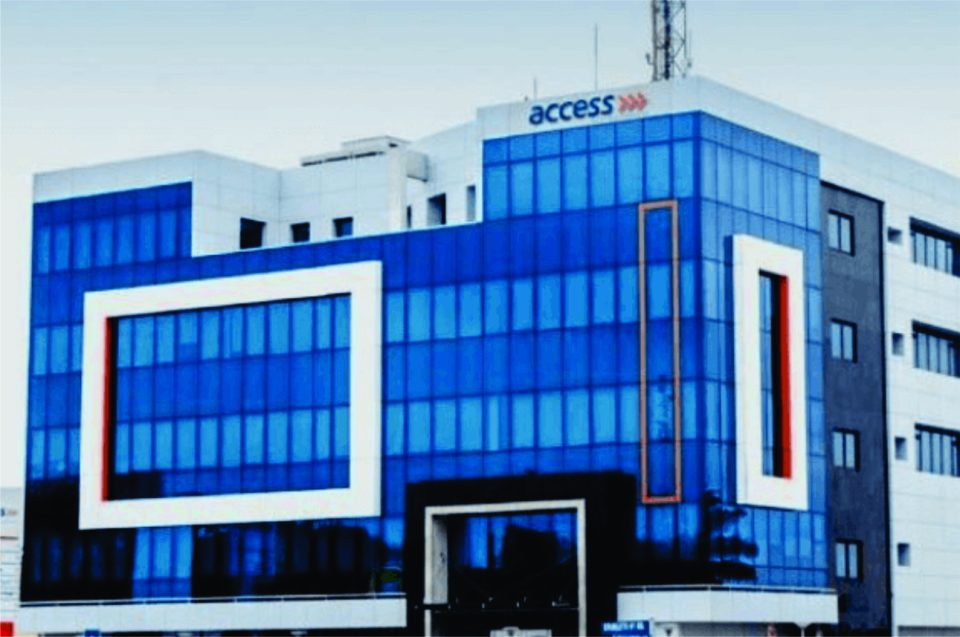Africa is at a juncture, with current trends perpetuating some enormous development challenges that are potential threats to its economic stability and social progress. The continent currently hosts over 1.4 billion people, ranking among the highest in the world with an annual growth rate of 2.7 percent. The continent faces a population that will grow rapidly to 2.5 billion by the middle of this century and is, therefore, at a crossroads where it has to balance economic development with environmental preservation and social equity. Such rapid population growth worsens a number of predicaments facing the people of the continent, especially those dealing with poverty, inequality, and environmental degradation. More than 40 percent of the population in SSA currently live in extreme poverty. The proportion will continue to increase unless serious efforts are made to remedy the developmental needs of the continent.
From the huge gap in required financing needed for meeting the UN SDGs by 2030 to some of the most daunting challenges, Africa needs about $2.5 trillion annually for meeting the SDGs; according to UNECA, the current financing is short by approximately $200 billion each year. Traditional models of financing have fallen short in addressing these gaps, and with only 43% of adults in Sub-Saharan Africa having financial services, the argument is more binding than ever for sustainable finance.
Africa is also particularly vulnerable to the magnified development impacts of climate change, threatening to reverse years of development progress. According to AfDB, if not curbed, climate change could cost African economies as much as $50 billion annually by 2040. That means there is, indeed, urgent need for climate-resilient infrastructure and sustainable models of economic development that give huge concern to the environment, equity, and economic viability.
These are offset by sustainable finance, which embraces many elements of ESG in its investment decisions and which, in turn, is becoming indispensable to accelerate Africa’s transition toward a low-carbon, resistant, and inclusive economy. Precisely, the United Nations estimates additional financing required for the realization of the SDGs in Africa at $1.2 trillion per year by 2030. But financial flows to the continent are presently a long way from reaching that benchmark: Foreign direct investment in Africa decreased by 5.4% this year, UNCTAD said.

The current landscape of sustainable finance in Africa is relatively underdeveloped. While the massive renewable energy potential the continent boasts exists, the actual investment in renewable energy is crowded into Africa by only 3% globally. Furthermore, the green bond market is still at an emergent stage in Africa, commanding less than 1% of the global market. This underlines the need for innovative financing mechanisms, regulatory frameworks, and strategic partnerships in unlocking the potential of sustainable finance for Africa.
Against surging climate risks, increasing social inequalities, and resource scarcity, the call for sustainable finance could never be louder. The financial sector is, taken as a whole, one of the most important drivers for a sustainable and inclusive economy. But the real question is: Are we doing enough? Are we capturing entirely the potential that sustainable finance offers for enabling innovative solutions and growth in these much-needed areas?
Access Bank is leading the charge in redefining the future of finance by integrating sustainability at the heart of its core and continuously raising the bar across various touchpoints. As one of Africa’s leading financial institutions, operating across 23 markets on 3 continents, serving over 60 million customers through a vast network of more than 700 branches and service outlets. The Bank employs over 28,000 thousand people in its operations across Africa, the United Kingdom, and Europe, with representative offices in China, Lebanon, India and the UAE. The Bank is a diversified financial institution which combines a strong retail customer franchise and digital platform with deep corporate banking expertise, proven risk management and capital management capabilities. The Bank services its various markets through five business segments: Personal, Business, Operations and IT, Commercial and Corporate & Investment Banking. Access Bank has enjoyed what is arguably Africa’s most successful banking growth trajectory in the last 18 years, becoming one of the continent’s largest retail banks. As part of its continued growth strategy, Access Bank is focused on mainstreaming sustainable business practices into its operations. The Bank strives to deliver sustainable economic growth that is profitable, environmentally responsible, and socially relevant, helping customers to access more and achieve their dreams. As a pacesetter in the sustainability space, the Bank played a key role in collaborating with the United Nations Environment Programme Finance Initiative (UNEP FI) and other leading banks to develop the globally recognized Principles for Responsible Banking (PRB). Being the only West African bank in the Core Group, it actively participated in shaping these principles, which have become the benchmark for responsible banking institutions worldwide
The Bank’s commitment to sustainability is exemplified by various initiatives including the Sustainable Finance Accelerator Program—a pioneering initiative designed to drive sustainable solutions across the continent, addressing global challenges with bold, visionary action.
The Sustainable Finance Accelerator Program emerges as a natural evolution of Access Bank’s long-standing dedication to sustainable finance. This program is not just a financial initiative, but a comprehensive ecosystem designed to empower sustainability-focused projects and businesses. It provides a robust platform where innovative ideas can be nurtured, refined, and ultimately transformed into impactful solutions that address some of Africa’s most critical challenges.
At the heart of the program lies a multifaceted approach aimed at fostering sustainable development on multiple fronts. Participants in the program receive personalized mentorship from seasoned experts in sustainable finance and entrepreneurship. These mentors bring a wealth of knowledge and experience, guiding participants through the complexities of developing and scaling sustainable ventures. This one-on-one mentorship is designed to empower entrepreneurs with the skills and insights needed to navigate the rapidly evolving landscape of sustainable finance.
Capacity building is another cornerstone of the program. Through a series of targeted training sessions and workshops, participants gain deep insights into sustainable finance, climate risk management, and impact investing. These educational components are tailored to equip participants with the technical skills and strategic thinking required to create solutions that are not only innovative but also scalable and impactful. The program’s focus on capacity building ensures that participants are well-prepared to tackle the challenges of sustainable development and contribute meaningfully to the global sustainability agenda.
Access to funding is a critical enabler of innovation, and the Sustainable Finance Accelerator Program provides participants with multiple avenues for financial support. The program offers access to loans, seed funding, and impact investment opportunities, ensuring that the most promising ideas receive the financial backing they need to thrive. This funding is crucial in helping participants move from concept to reality, enabling them to develop, pilot, and scale their projects in a way that maximizes their impact on the environment and society.
Networking is another vital component of the program, connecting participants to a global network of sustainable finance professionals, entrepreneurs, and organizations. This network provides participants with opportunities to collaborate, share knowledge, and access new markets, creating a dynamic ecosystem that supports the growth and success of sustainable ventures. Through these connections, participants are not only able to expand their reach but also to learn from the experiences of others, gaining insights that can help them overcome challenges and seize new opportunities.
The Sustainable Finance Accelerator Program is not merely about fostering individual business success; it is about addressing some of the most pressing challenges facing Africa today. By targeting issues such as climate change, energy poverty, gender, and the need for sustainable infrastructure development, the program is strategically positioned to catalyze transformative change across the continent. For instance, by supporting initiatives that reduce carbon emissions, promote renewable energy, and enhance climate resilience, the program contributes directly to the global achievement of the UN SDGs.
In the realm of infrastructure, the program is financing green projects that promote sustainable urban planning and development. These projects are not only environmentally friendly but also economically viable, contributing to the creation of resilient and sustainable cities across Africa. By focusing on sectors such as renewable energy, sustainable agriculture, green infrastructure, and eco-tourism, the program is driving positive change that has the potential to transform the continent’s economic and environmental landscape.
The far-reaching impact of the Sustainable Finance Accelerator Program is poised to make a substantial contribution to the achievement of the United Nations Sustainable Development Goals (SDGs). Through its comprehensive approach, the program is helping to build a more sustainable future for generations to come. By accelerating the development and implementation of sustainable finance solutions, Access Bank is not only contributing to the global sustainability agenda but also shaping a resilient and inclusive future for Africa.
In honor of its defining roles across its countries of operations, Access Bank has been accorded recognition by reputable domestic and global organizations. Some of these recognitions include the Karlsruhe Award for Outstanding Business Sustainability Achievement (eight-time consecutive winner); World Finance Award for Most Sustainable Bank (eleven-time winner); Central Bank of Nigeria Award for Sustainable Bank of the Year (three-time consecutive winner), amongst others. The Bank was also rated as the overall best company in Corporate Social Responsibility and Sustainability as published by Forbes Africa.
Meanwhile, the 2024 analysis of the latest Brand Finance report showed a significant 73 per cent increase in Access Bank’s brand value, reinforcing its status as one of the continent’s leading banking brands and clearly Nigeria’s top financial institution, per Brand Finance’s annual ranking of the world’s Top 500 Banking Brands.
Access Bank’s brand value rose to N355.3 billion, placing it as the 31st most valuable brand in Africa, according to Brand Finance’s Africa 200 2024. This remarkable growth is primarily attributed to substantial increases in interest-based income, reflecting improved revenues and strong financial performance. With its retained status as the brand leader in Nigeria, it’s obvious that the future looks good for the brand and its promoters as Access continues to chart the path towards a prosperous future for all its stakeholders across Africa, and indeed, the rest of the world.

